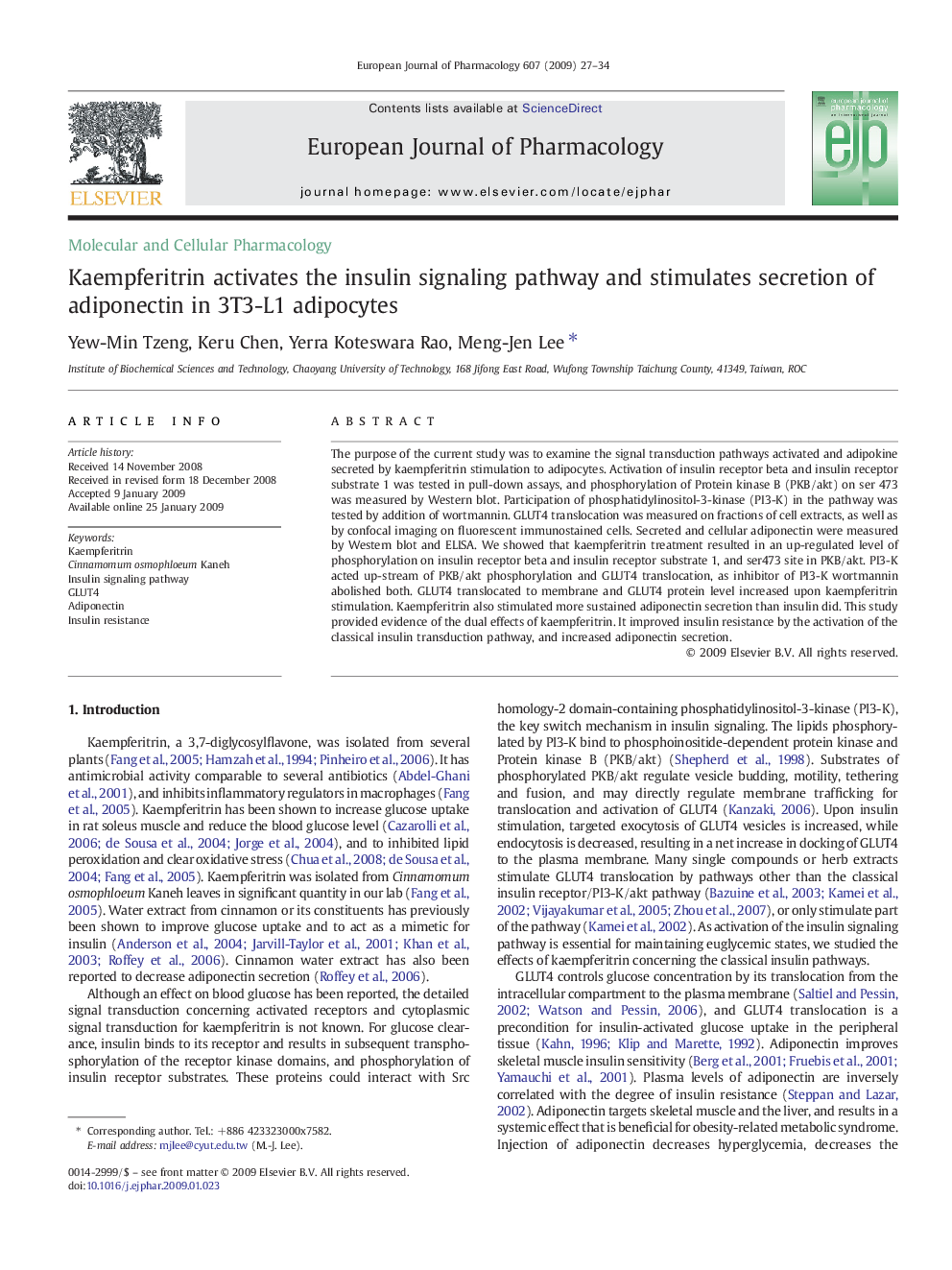| Article ID | Journal | Published Year | Pages | File Type |
|---|---|---|---|---|
| 2534430 | European Journal of Pharmacology | 2009 | 8 Pages |
The purpose of the current study was to examine the signal transduction pathways activated and adipokine secreted by kaempferitrin stimulation to adipocytes. Activation of insulin receptor beta and insulin receptor substrate 1 was tested in pull-down assays, and phosphorylation of Protein kinase B (PKB/akt) on ser 473 was measured by Western blot. Participation of phosphatidylinositol-3-kinase (PI3-K) in the pathway was tested by addition of wortmannin. GLUT4 translocation was measured on fractions of cell extracts, as well as by confocal imaging on fluorescent immunostained cells. Secreted and cellular adiponectin were measured by Western blot and ELISA. We showed that kaempferitrin treatment resulted in an up-regulated level of phosphorylation on insulin receptor beta and insulin receptor substrate 1, and ser473 site in PKB/akt. PI3-K acted up-stream of PKB/akt phosphorylation and GLUT4 translocation, as inhibitor of PI3-K wortmannin abolished both. GLUT4 translocated to membrane and GLUT4 protein level increased upon kaempferitrin stimulation. Kaempferitrin also stimulated more sustained adiponectin secretion than insulin did. This study provided evidence of the dual effects of kaempferitrin. It improved insulin resistance by the activation of the classical insulin transduction pathway, and increased adiponectin secretion.
